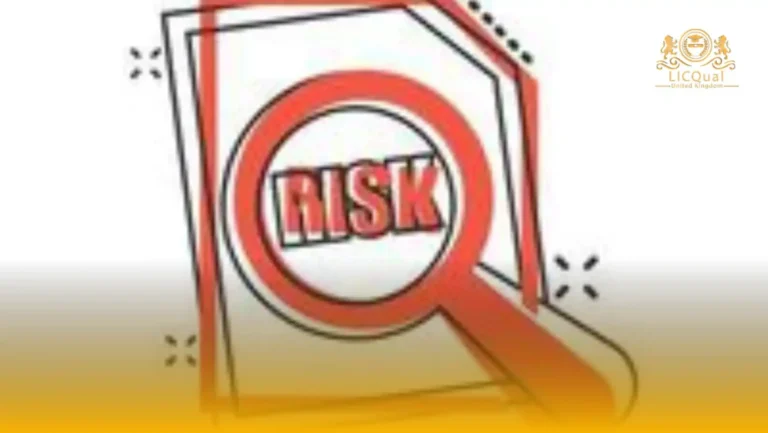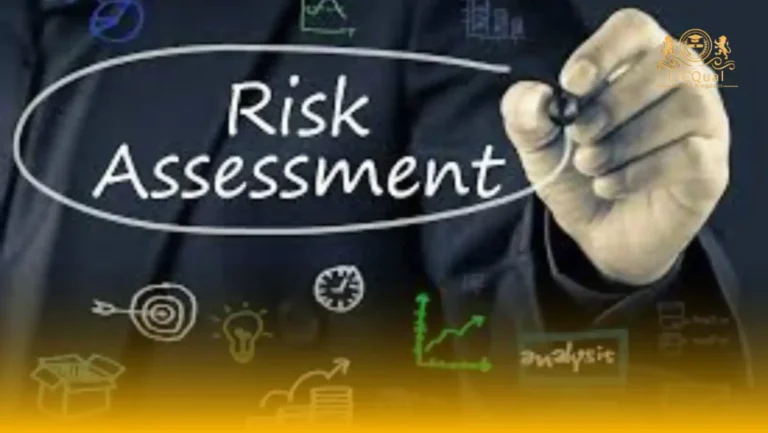The LICQual Level 6 International Diploma in Risk Management is a prestigious qualification designed for professionals who aim to master the strategic and operational aspects of risk management. This course offers an in-depth understanding of risk identification, assessment, and mitigation, equipping learners with the skills needed to effectively manage risks in complex and dynamic environments.
LICQual Level 6 International Diploma in Risk Management is ideal for senior managers, risk professionals, and decision-makers, this diploma helps learners navigate global risk challenges while ensuring organizational resilience and compliance with international standards. With practical insights and advanced methodologies, this course prepares you for leadership roles in risk management across various industries worldwide.
The LICQual Level 6 International Diploma in Risk Management provides an advanced-level curriculum focused on the theory, strategies, and practical applications of risk management at an international scale. Through this qualification, learners will develop expertise in assessing and mitigating risks, managing organizational uncertainty, and implementing risk management frameworks aligned with global standards.
The LICQual Level 6 International Diploma in Risk Management is designed for professionals seeking to advance their careers in risk management, corporate governance, and compliance. Whether you are looking to enhance your leadership skills or broaden your global risk management knowledge, this qualification will provide the tools and insights you need to succeed at the highest levels of risk management.
Course Overview
Qualification Title
LICQual Level 6 International Diploma in Risk Management
Total Units
6
Total Credits
120
GLH
480
Qualification #
LICQ2200015
Qualification Specification
To enroll in theLICQual Level 6 International Diploma in Risk Management, applicants must meet the following criteria:
|
Qualification# |
Unit Title |
Credits |
GLH |
|---|---|---|---|
|
LICQ2200015-1 |
Risk Management: An introduction and Overview |
60 |
80 |
|
LICQ2200015-2 |
Corporate Culture and Risk Management |
60 |
80 |
|
LICQ2200015-3 |
Risk Identification Methodologies |
60 |
80 |
|
LICQ2200015-4 |
Incidents Prevention and Risk Control |
60 |
80 |
|
LICQ2200015-5 |
Risk Assessment and Legal Compliance |
60 |
80 |
|
LICQ2200015-6 |
Responsible Governance and Performance Measurement |
60 |
80 |
By the end of this course, learners will be able to:
1. Risk Management: An Introduction and Overview
- Understand the fundamental principles and frameworks of risk management.
- Analyze the role of risk management in organizational strategy and decision-making.
- Demonstrate a comprehensive understanding of risk management terminology and concepts.
2. Corporate Culture and Risk Management
- Identify the impact of corporate culture on risk management practices.
- Assess how organizational values, ethics, and leadership influence risk management effectiveness.
- Implement strategies to align corporate culture with effective risk management frameworks.
3. Risk Identification Methodologies
- Apply various methodologies and tools for identifying risks in diverse organizational contexts.
- Evaluate the strengths and limitations of different risk identification techniques.
- Develop systematic approaches to identify both existing and emerging risks within the business environment.
4. Incidents Prevention and Risk Control
- Understand the key principles of incident prevention and control in risk management.
- Design and implement risk control measures to minimize or eliminate identified risks.
- Evaluate the effectiveness of incident prevention strategies and their impact on organizational risk reduction.
5. Risk Assessment and Legal Compliance
- Conduct detailed risk assessments, considering legal, regulatory, and industry-specific compliance requirements.
- Analyze the legal and ethical implications of risk management decisions.
- Ensure risk management practices align with relevant laws and regulations to maintain organizational compliance.
6. Responsible Governance and Performance Measurement
- Develop a governance framework to ensure responsible management of organizational risks.
- Establish performance measurement systems to assess the effectiveness of risk management strategies.
- Monitor and evaluate risk management performance, ensuring continuous improvement and accountability in risk management practices.
This diploma is ideal for:
Assessment and Verification
All units within this qualification are subject to internal assessment by the approved centre and external verification by LICQual. The qualification follows a criterion-referenced assessment approach, ensuring that learners meet all specified learning outcomes.
To achieve a ‘Pass’ in any unit, learners must provide valid, sufficient, and authentic evidence demonstrating their attainment of all learning outcomes and compliance with the prescribed assessment criteria. The Assessor is responsible for evaluating the evidence and determining whether the learner has successfully met the required standards.
Assessors must maintain a clear and comprehensive audit trail, documenting the basis for their assessment decisions to ensure transparency, consistency, and compliance with quality assurance requirements.







